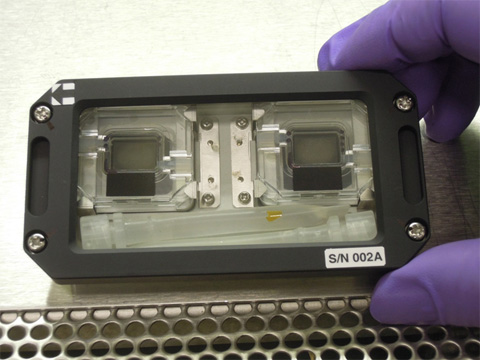This is an archive of information released in the past.
Disclaimer: It may contain broken links or outdated information. Some parts may not function in current web browsers.
*Visit https://humans-in-space.jaxa.jp/en/ for the latest information.

Experiment
- News
- Kibo Utilization Strategy
- Kibo Utilization Plan
- List of JAXA's Utilization Themes
- Experiment Facilities
- Space Environment Utilization
- Archive
Space Aging experiment has started on Kibo
JAXA's life science experiment "Study of the effects of space flight on the aging of C. elegans* (Space Aging)" has started on the Japanese Experiment Module, "Kibo."
*Principal Investigator: Yoko Honda, Tokyo Metropolitan Institute of Gerontology
Space Aging experiment aims to elucidate how microgravity affects creatures' aging process. The experiment measures the longevity of the nematode worms (C. elegans) in space and analyzes the change of the gene expression.
The result of this experiment will clarify the senescence rate and the effects on the longevity of the worms which stay long-term in space. If a gene that controls the aging process is found, it may become a clue to the development of a new genomic drug that slows the aging or prevents age-associated diseases.
- Launch: On April 15, 2015, the cartridge containing two types of nematode worms was launched from the Cape Canaveral Air Force Station, U.S. aboard the SpaceX CRS-6 and delivered to Kibo.
- Start of the experiment: On April 19, NASA astronaut Scott Kelly set the cartridge into the Cell Biology Experiment Facility (CBEF).
- Observation: By a successful telecommand sent from the User Operations Area (UOA) at the Tsukuba Space Center (TKSC), the observation became available. The culture and observation will last for about two months.

The cartridge containing nematode worms (Photo taken on the ground)
*All times are Japan Standard Time (JST)
| Copyright 2007 Japan Aerospace Exploration Agency | Site Policy |